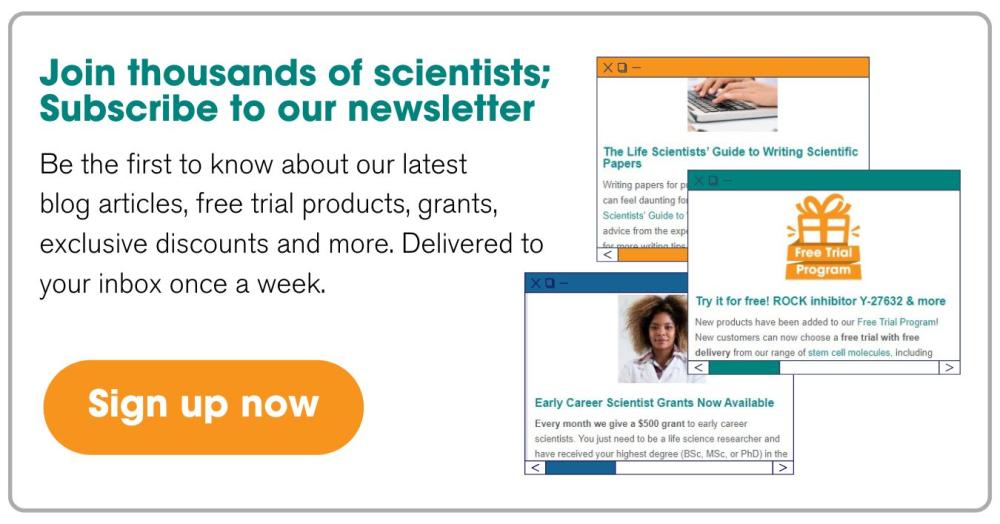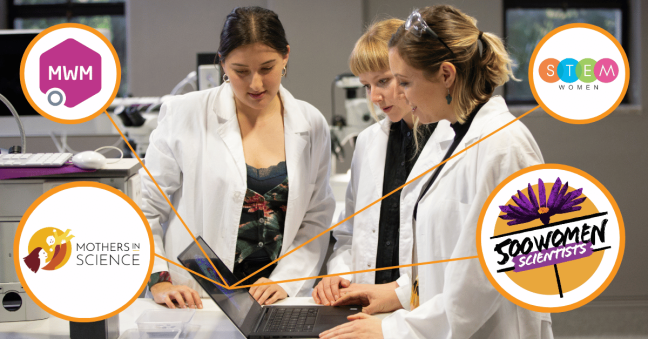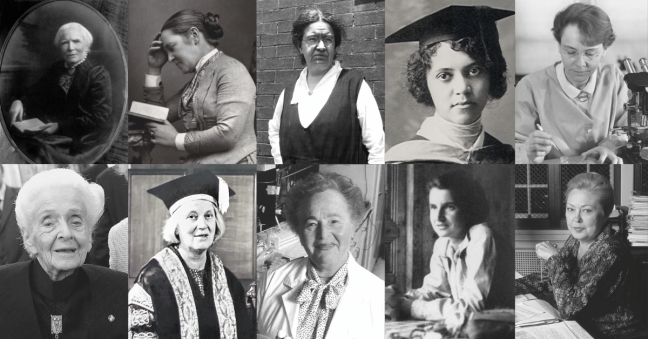Closing the Gender Gap in Science: What Needs to Change?
Despite more women than ever pursuing STEM degrees, female scientists remain underrepresented at senior levels in academia, industry, and leadership. The reasons are varied and deeply rooted—ranging from imposter syndrome and work-life balance to systemic bias and a lack of support at critical career stages.
Over the years we’ve posed the same question to the female scientists we’ve interviewed for our blog: What more can be done to improve the gender balance in STEM? Their responses always offer a powerful reminder that change must be both cultural and structural—and that visibility, mentorship, flexibility, and accountability all have a role to play.
This article brings together some of the most insightful and practical advice we’ve received — straight from the women working to change the system from within. From building confidence to fixing structural inequalities, here’s what they had to say about closing the gender gap and creating a more inclusive future for women in STEM.
Support women early in their careers
The transition from student to scientist is one of the most vulnerable points in a research career — and it’s where many women are lost from STEM. Strong mentorship, visible role models, and supportive environments are key to helping women stay and thrive at PhD level.
“The PhD to postdoc transition is where a lot of talented women are lost from STEM. More mentoring for women at this stage to build confidence and resilience is important. Female PhD students need more support to recognise that a career in science doesn’t mean giving up your whole life anymore.” — Ruth Carmichael
Challenge imposter syndrome & build confidence
Imposter syndrome can affect anyone, but it can have a particularly negative affect on women who are made to feel they don’t belong in science. These women remind us that confidence can be nurtured — and that women deserve to take up space and be heard.
“Women in STEM need a supportive environment to think confidently and be taken seriously, to know that their voice matters. Some of the biggest issues I see in female scientists are imposter syndrome, and being in an environment that doesn’t build their confidence.” — Rachael Guenter
“For women to be better represented in STEM, I think it’s all about resilience. Be strong, stay true to yourself and what you know is right, pick yourself back up and carry on progressing through life the way YOU want to.” — Amy Gladwell
Showcase role models & increase visibility
Representation matters in every area of life. When women see others like them succeeding in science — not just at the top, but doing everyday research — it opens the door to possibility and belonging.
“One thing we can all do is promote visibility. Showcase the fantastic female role models we have around us. It makes a difference. Stories from women doing the groundwork are valuable… they help young women feel they belong.” — Noelia Dominguez Falcon
“Painting a more inclusive picture of what it means to be a scientist is our opportunity to challenge outdated stereotypes and shape future career choices for decades to come.” — Beata Mierzwa
Fix the work-life balance
Careers in science can be demanding, but a lack of structural support for family life can push many women out. Practical changes and cultural shifts are needed to make STEM careers sustainable for everyone.
“Being a dedicated scientist is not a 9 to 5 job. The challenge becomes very apparent when you have a family, or you just gave birth. We need more kindergartens with flexible working hours and more flexible work-from-home options. Even with the most supportive partner, tackling everything on top of your lab work can become practically impossible at times.” — Kristina Mlinac Jerkovic
Combat bias, harassment & inequality
From unconscious bias to toxic lab cultures, women still face deeply rooted inequalities in science. Real progress means recognising these issues and holding systems — and individuals — accountable.
“We need to start by changing the terrible culture of bullying and harassment in science training which disproportionately affects women. Perpetrators need to be held accountable and should not be allowed to have trainees or receive grant funding.”— Joanne Kamens
“Senior researchers need to be cognizant of unconscious bias. I often attend conferences where the senior panellists or award winners are all men. The women in the room notice, the men often don’t.” — Allison Coffin
Create systemic & cultural change
Inequality in science doesn’t exist in a vacuum — it reflects wider societal issues. True inclusion means rethinking how we educate, support, and value women in STEM from the ground up.
“Inequities in science reflect inequities in our societies… those inequities are systemic and need systemic change to be rectified” — Khara Ramos
“The marginalization of women in STEM on a global scale is a fact that cannot be overstated. In Sub-Saharan Africa… cultural traditions still consider women as ‘things’ to be seen rather than heard.” — Uloma Beauty Elvis-Offiah
“Reach girls at a young age… highlighting female role models is our chance to challenge outdated stereotypes and shape future career choices for decades to come.” — Beata Mierzwa
Train allies & incentivize equality
And finally, creating change shouldn’t be the responsibility of women alone. To shift the balance, we need allies at every level and practical policies that level the playing field — from bias training to funding schemes.
“Allyship training is key – raise boys and men to be allies, and girls and women to champion others.” — Dr Lucka Bibic
“It’s important to keep the gender issue on the table, incentivize parity, both in meeting and in funding schemes, so that hopefully in time we won’t need them.” — Joana Ferreira
Additional resources for women in STEM
We have lots of additional resources for female scientists on the Hello Bio blog, including interviews, guest articles and more:
-
Gender Bias from a Woman in Science - guest blog by Kay M. Tye
-
Overcoming Challenges as a Woman in STEM - guest blog by Gagandeep Kaur
-
Promoting Diversity in STEM Online - guest blog by Mackenzie Lemieux and Rebecca Zhang
-
10 Tips for Balancing Parenthood on the Path to Your PhD - guest blog by Laura Geben
________________________________
If you enjoyed this article, why not check out the other resources available on our blog. We are passionate about supporting life scientists including early career life scientists and PhD students - with really low-priced reagents, antibodies and biochemicals, early career scientist grants, and resources to help with both personal and professional development. We know how tough it is - so we hope you find these helpful!
More General Support for Life Scientists
For advice on wellbeing, dissertations, presenting at conferences, wellbeing, PhD support, networking and lots more, we have a huge range of articles to help - just click below:
Save up to 50% on our high purity reagents...
When you get to the stage of planning your experiments, don't forget that we offer a range of low-cost, high-purity agonists, antagonists, inhibitors, activators, antibodies and fluorescent tools (yes - they really are around half the price of other suppliers!) You can use our Quick Multi-Search Tool to search for lots of products in one go, and the range includes:
- Enzyme inhibitors and activators
- Chemogenetic ligands
- Ion channel modulators
- GPCR & ionotropic receptor ligands
- Cell biology reagents & biochemicals
Technical resources
Try our Molarity Calculator: a quick and easy way to calculate the mass, volume or concentration required for making a solution.
Try our Dilution Calculator: an easy way to work out how to dilute stock solutions of known concentrations
We also offer a comprehensive range of technical resources including antibody protocols and methods, product guides and mini-reviews:
And finally, don't forget to check back in with our blog regularly for our latest articles. If there’s something you’d love to contribute to the community, whether that’s an interview or article, drop us a line at hello@hellobio.com
---




























